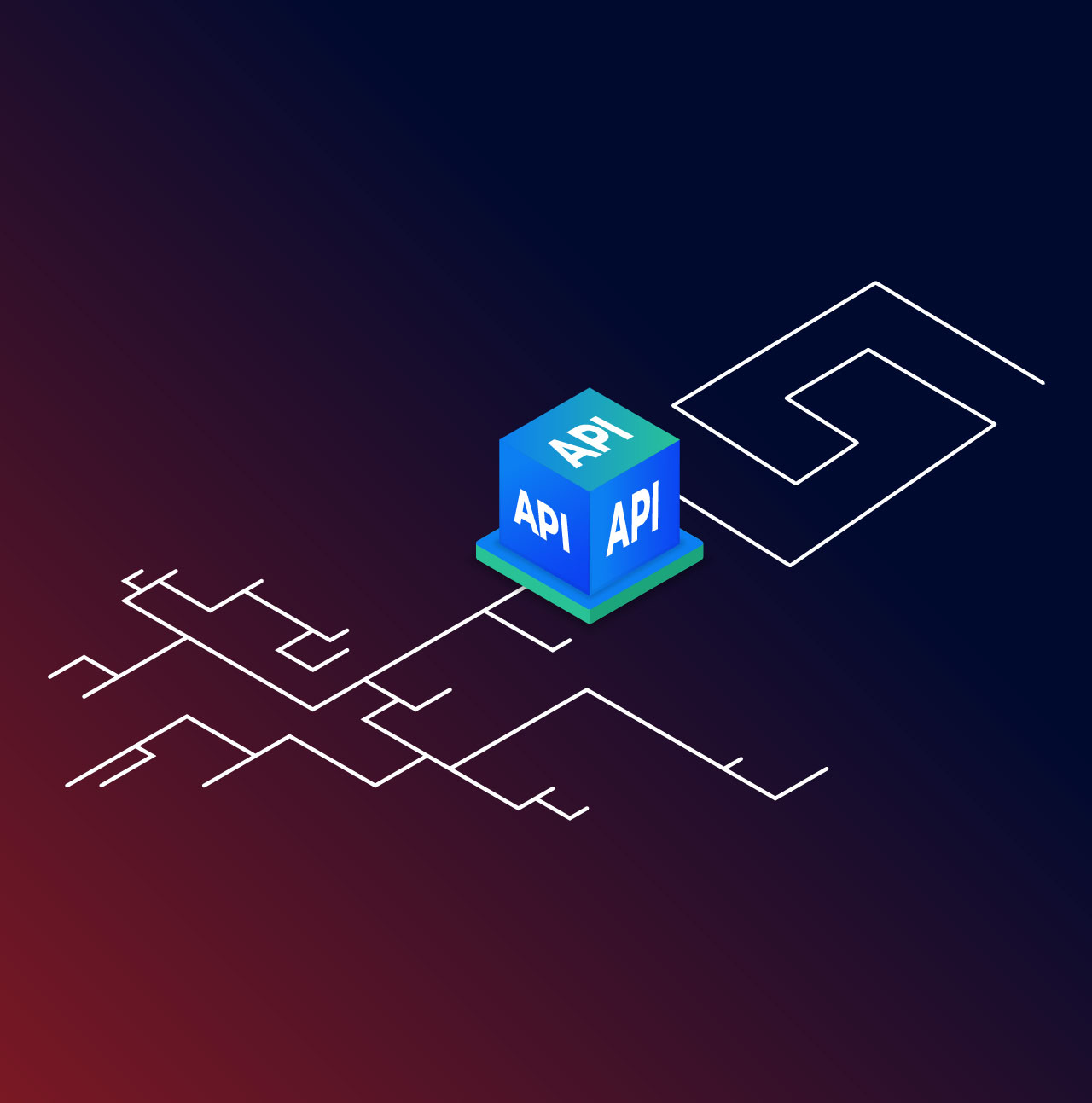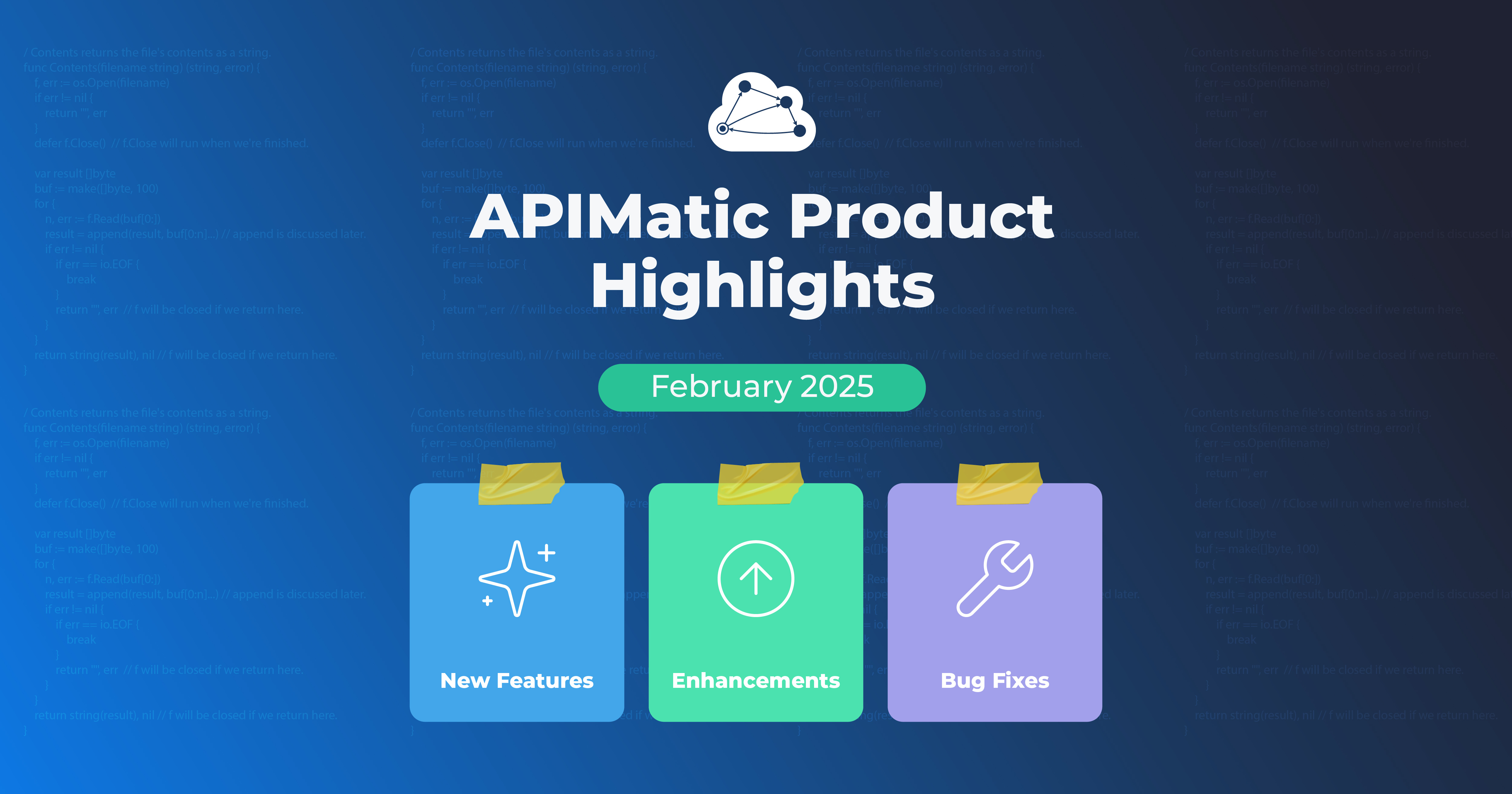With this release, you can make your API documentation AI-ready with automatic llms.txt generation, streamline API Portal development with powerful new CLI commands, and handle paginated responses seamlessly across Java, C#, Ruby, and Python SDKs.
We've also made the API Portal navigation more customizable, added granular auto-fix controls to our VS Code extension, and updated Java SDK publishing to support Sonatype's new Central Portal, ensuring your workflows stay current with industry changes.
Make Your Docs AI-Ready with llms.txt Support
You can now automatically generate llms.txt and llms-full.txt files in your API Portals.
This means tools like GitHub Copilot, ChatGPT, Claude, and Cursor can better understand and interact with your API Documentation.
APIMatic now provides out-of-the-box support for llms.txt, a new web standard designed to make developer documentation accessible to AI assistants. These files are similar to sitemap.xml and robots.txt, but tailored for LLMs, and are generated automatically when using the Docs-as-Code workflow
🔗 Read the changelog for details.
🚀 New CLI Commands to Build, Serve, and Customise Your API Portal
You can now streamline your Docs-as-Code workflow with a new set of APIMatic CLI commands.
With these commands, you can scaffold new projects, create API recipes, generate a table of contents, and preview changes in real-time:.png?width=610&height=339&name=carbon%20(3).png)
👉 Check out the CLI reference documentation to learn more about these commands.
To install or upgrade the CLI, run the following command:.png?width=597&height=139&name=carbon%20(4).png)
📦 Java SDK Publishing Updated for Sonatype Central Portal Migration
You can now publish Java SDKs using the new Sonatype Central Portal integration.
APIMatic has updated the Java SDK publishing flow to align with Sonatype's retirement of OSSRH on June 30, 2025. Your Java packages now publish directly to the Sonatype Central Portal, ensuring a seamless transition.
🔗 See the changelog for details.
🛠 VS Code Extension Now Supports Auto-Fixing Individual Lint Issues
You can now auto-fix specific rule violations in your API definition either by rule or by instance. This gives you greater control when cleaning up your OpenAPI specifications.
With the release of v1.0.4 of the APIMatic VS Code Extension, we've enhanced the auto-fix functionality to support granular fixes. Previously, auto-fixes were applied across the entire API workspace but now, you can:
- ✅ Auto-fix all instances of a specific rule violation
- ✅ Auto-fix a single instance of a rule violation
This feature enables precise issue resolution, letting you fix only what needs fixing.
🔗 Read the changelog for more details
🧭 Customise Your Developer Portal's Left Navigation Bar
You can now control how your developer portal’s left navigation is structured and displayed.
This means a more tailored, intuitive experience for your users, whether you prefer dropdowns, collapsible sections, or always-on navigation.
We’ve introduced new options for customising the Left Navigation Bar, including two navigation modes and three layout variations. The standard mode displays all navigation items in a vertical tree structure, while the dropdown mode groups top-level items in a dropdown menu, showing child items only for the selected section. You can also choose how first-level sections behave on load with the basic, expanded, or collapsed layout variations. Together, these settings give you precise control over how your documentation is organised and experienced.
👉 See the Theme Layout Configuration Reference for full details.
📚 Pagination Support Added to C#, Java, Ruby, and Python SDKs
You can now navigate paginated API responses using a unified, OpenAPI-driven interface in the Java, C#, Ruby and Python SDKs. This means less boilerplate code and consistent pagination handling across all your SDKs, regardless of the pagination style.
Configure pagination in your OpenAPI definition using the x-pagination extension. Your SDKs then automatically provide intuitive, language-specific helpers(both sync and async) for iterating over data.
For example, in the Java SDK, paginated endpoints return a PagedFlux<Item, PagedResponse<Item, Page>>, allowing you to:
- Stream items across pages
- Inspect page-level metadata (page number, offset, next cursor, next link)
- Handle errors consistently
This ensures a consistent developer experience across pagination strategies like cursor, offset, or link-based pagination.
👉 Learn more about the pagination in SDKs.
🛠 Improvements
- Nullable Field Handling in SDK Code Samples: SDK code samples now display nullable fields with their default or example values properly set to null. This means you can see exactly how to handle optional fields in your API implementations without guessing.
- Enhanced Client Initialisation Code Samples: The Getting Started guides now provide comprehensive SDK client initialisation code samples. You can copy and paste these examples directly into your projects without manual adjustments, speeding up your integration time.
- Improved GitHub App Validation Messages: Pull request validation messages from our GitHub App now clearly indicate they serve as quality gates for SDK and documentation generation. This gives you better context about validation results and helps your team understand when generated assets meet quality standards.
🐞 Bug fixes
- API Endpoint Order Preservation: Your SDKs and API documentation now maintain the exact sequence of endpoints as defined in your source API specification file. This helps you quickly locate endpoints in the same familiar order across all your generated assets.
⚠️ Deprecations & Breaking Changes
- [Deprecated] portalSettings.sideMenuTitleBehavior Flag:
The portalSettings.sideMenuTitleBehavior flag is now deprecated and will no longer be supported in future releases.
Next Steps:- Migrate to the new theme.layout.sidebar object in your build file
- Update any automation or CI/CD pipelines that reference the old object
- [Deprecated] OSSRH Publishing for Java SDKs:
Sonatype will retire OSSRH (including oss.sonatype.org and s01.oss.sonatype.org) on June 30, 2025. APIMatic has updated the Java SDK publishing workflow to use the new Sonatype Central Portal.
Next Steps:
-
- Update your publishing credentials from OSSRH username/password to Central Portal user tokens
- Review your pom.xml files as they now use central-publishing-maven-plugin instead of the legacy OSSRH plugins
- Check publishing status on the Maven Central deployments page (the “Success” status on the SDK Publishing screen now indicates validation passed and delivery to Maven Central is complete)
📢 Share your feedback
Your feedback makes our product better.
- 🐞 Found a bug? Report it at support@apimatic.io and earn eternal developer karma
- 💡 Got a brilliant idea? Schedule a 15-minute chat and share it before our product team claims they thought of it first.
- 🎉 Love something we built? Tell us so we can argue less about what to build next
Follow us on LinkedIn to stay updated with the latest news from APIMatic!





